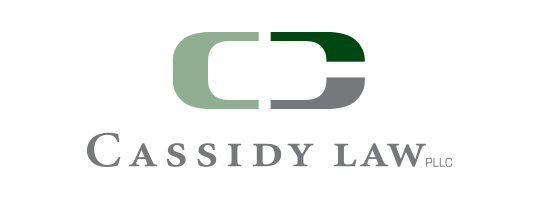
According to a recent DOJ non-prosecution agreement (NPA) with Credit Suisse Hong Kong, the popular Take Our Daughters and Sons to Work Day got a little twisted. According to the facts in the NPA, the daughter of a high-ranking Chinese foreign official took her mom on her Credit Suisse business trips.
This was possible because Credit Suisse hired the daughter at the mother’s urging. Since Credit Suisse was so accommodating to the mother’s request to hire her daughter, it got business from the mom’s state-owned agency.
Seemed like a win-win until DOJ poured cold water on the whole arrangement on the basis that the behavior violated the Foreign Corrupt Practices Act. This is not the first time DOJ pursued companies that exchanged employment for foreign government business or government benefits. (Click here for a previous post on DOJ FCPA settlements involving a company’s hiring practices.)
There are so many valuable lessons from the Credit Suisse – DOJ settlement that help you avoid having your own NPA, a $47 million criminal penalty as well as having to disgorge $24,989,843 in ill-gotten profit, along with $4,833,961 in prejudgment interest for violating the FCPA.
So many lessons that I could draft a law review article on it. But, few are those who want to read something that long not to mention my lack of interest in writing something that long.
Thus, I will discuss the NPA over a series of posts which will cover: lessons learned from the facts as detailed in the NPA; DOJ’s reasons for reaching the agreement it did with Credit Suisse; and what Credit Suisse has promised it will do going forward to be a better corporate citizen.
One lesson I took away from what happened was how hiring for illegal or unethical reasons does not just violate the law but most likely impacts employee morale. Although the NPA does not discuss whether morale was impacted, a review of some facts, permit the reasonable person to conclude that employee morale must have taken a hit as a result of decisions to hire the family members of government officials.
First, those who were hired because of their relationship with a government official from whose agency Credit Suisse wanted work, displayed a remarkable entitlement and lack of work ethic; yet, they were promoted and bonused.
For example, one referral hire did not attend her required training and she brought her mother to a training in New York. Additionally, the hire left regularly around 4 p.m. while colleagues who did not have the benefit of her connections worked to 9 p.m. or later. Further, Credit Suisse employees indulged this hire’s mother by allowing the mother to approve a list of client deals for her daughter to work on.
A referral hire received the worst grade in the class on an assignment. Her test results suggested that she did not even try to answer the questions since her answers followed a pattern in selecting the multiple-choice answer rather than any real attempt to answer the questions.
On other assignments, Credit Suisse employees observed that a referral hire likely cheated since she and another hire made the exact same error, that nobody else had made.
Further, since these employees were not performing some Credit Suisse employees crafted emails for one referral hire to draft and then send back to them to make it appear as though the referral hire worked to secure a deal for Credit Suisse. Credit Suisse employees then emailed the email which was inaccurately attributed to the referral hire to others at Credit Suisse stating that the referral hire made the win possible. Shortly after this, Credit Suisse won a deal from the government agency where the employee’s mother worked.
Second, the facts in the NPA demonstrate how merit-based reward went out the window. Despite the behavior discussed above, Credit Suisse at times, to make the hired relatives of government officials happy; promoted the hired relatives and increased their compensation based on instructions from government officials.
Credit Suisse employees vouched for the referral hires’ performance, despite the lack of performance. Credit Suisse employees made plans to promote one referral hire “if she delivers” apparently referencing the fact that the hire was a foreign official’s daughter capable of securing Credit Suisse IPO work.
Another referral hire, upset about her position, emailed Credit Suisse employees stating that: “as far as I remember, my mom has told me that CS has agreed to provide a contract with an earlier programme to me.” Within a week, her salary was increased.
Email discussions amongst Credit Suisse employees show just how ludicrous this was.
For example, in emails Credit Suisse employees puzzled over what to write in a referral hire’s performance evaluation proposing that they say: “Pls come to the office more often – we would like to see more of your smiling face,” and “Come to the office, answer your phone, don’t be rude…”. Or that they simply label the hire as “special situation” thus, no need for feedback. Thus making clear the work contributed, or not, by the relatives of government officials was of no moment when considering whether they should be promoted or compensated.
Third, in order to keep the relatives of government officials employed on matters dealing with the agencies where Credit Suisse wanted work and where the employee had familial relationships, Credit Suisse employees who did deliver exceptional performance were let go.
Even though the NPA does not discuss how other employees at Credit Suisse felt about the special employees who had their own “Take Your Mom to Work and on Business Trip Day(s)”, it is not hard to imagine how they felt.
Imagine you are in an organization, working your butt off, delivering exceptional work product, believing you will be reviewed based on merit through a sophisticated employee review process. And that as long as your work is exceptional you will be rewarded for it. But you learn, that is not the case.
Rather, employees around you, who aren’t coming to work, who are leaving early, who are bringing their mother to work, get raises and promotions because of who their mother is. And, in fact, you even see some of your accomplished colleagues let go to make room for the referral hires.
You don’t need it spelled out in an NPA to conclude that perhaps Credit Suisse employees likely discussed these inequities amongst themselves; possibly felt helpless to address the inequities; and felt their employer was unfair for not compensating their work while others who were not working as hard received promotions and additional compensation. As a result, Credit Suisse may have lost some highly talented employees, who, had they remained, would have delivered profits that would not have to be later disgorged because of wrongdoing.
So, as you think about your hiring practices, you should remember the tale of Credit Suisse and others who have been investigated and punished for violating the FCPA because of their friends and family of government officials hiring plan and adjustment your practices accordingly.
But, your motivation to set up some internal controls should not just be to avoid criminal and civil FCPA investigations, public shame, lots of legal fees, and tremendous fines. It should be about keeping quality talent who respect and are proud of your organization, who want to work hard for your organization, and who feel they are rewarded fairly based on merit and not on who their parents are. This will go a long way in adding lasting value to your company and in assuring your continued compliance with the law.
Abraham Lincoln described well the type of recruiting, hiring and promotion process you want – that is for your employees to
“have to do [their] own growing no matter how tall [their] grandfather was.”

